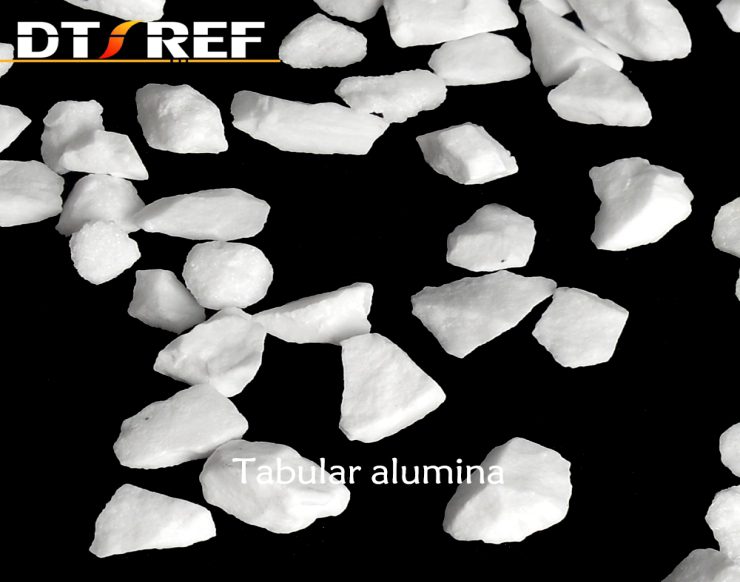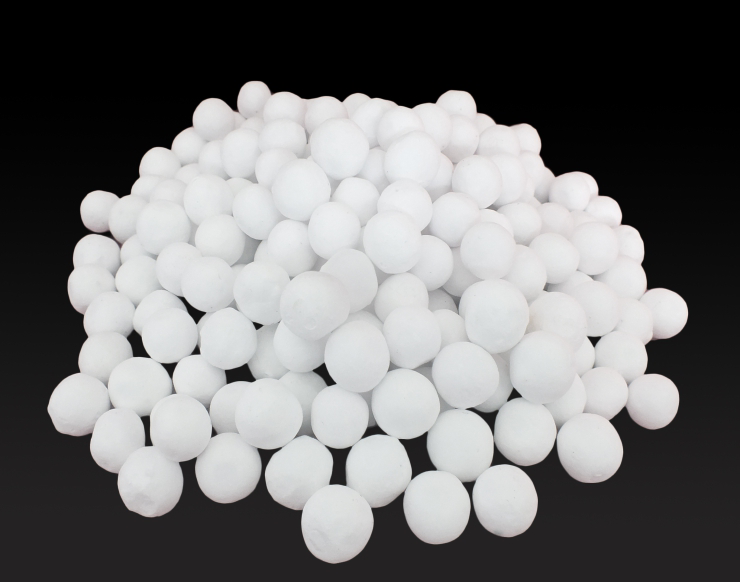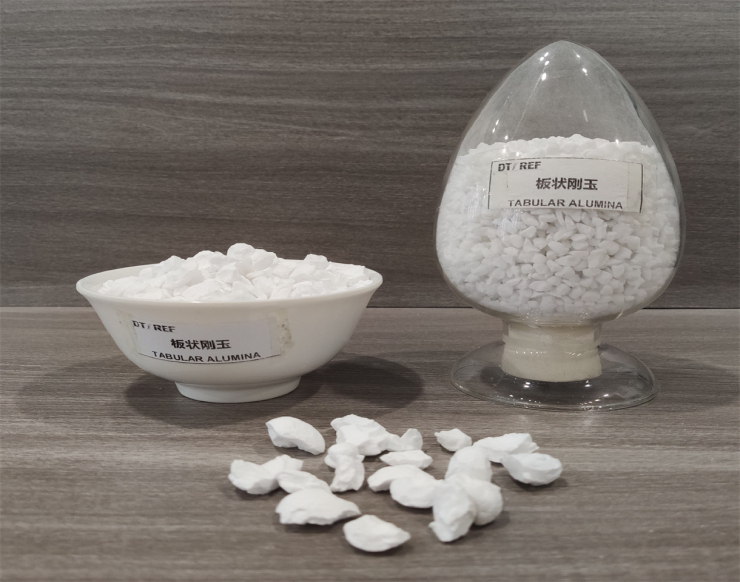Tabulartonerde ist ein reines, gesintertes a-Aluminiumoxid-Material ohne Zusätze wie MgO, B₂O₃ und andere Zusätze und mit Schrumpfung bei ultrahoher Sintertemperatur. Tabulartonerde hat eine vollständig entwickelte hexagonale Lamellenkristallstruktur von ungefähr 20...
Tabular alumina is a pure, no additives such as MgO, B₂O₃and other additives and ultra-high temperature sintering shrinkage of sintered a-alumina material. Tabular alumina has a fully developed hexagonal lamellar crystal structure of approximately 200ym.lt has coarse crystal, more closed pores and small pores in the crystal, so it has excellent thermal volume stability and thermal shock resistance. Tabular alumina has AL₂O₃ 99% min high chemical purity, so it has excellent insulation characteristics.extremely high heat resistance, mechanica strength and wear resistance, acid and alkali corrosion resistance.
Tabulartonerde ist ein wichtiger Grundrohstoff für die Herstellung hochwertiger ungeformter und geformter Feuerfestmaterialien. Sie wird häufig in der Stahl-, Gießerei-, Petrochemie-, Keramik-/Spezialkeramik-, Schleifmittel- und Verbrennungsindustrie sowie in anderen Branchen verwendet. Weitere Anwendungen sind elektrische Isolatoren, Ofengeräte, Walzen und Katalysatorträger. Tabulartonerde ist ein ausgezeichnetes Produkt zur Verwendung als Füllstoff für Epoxidharze oder Harzsysteme, mit denen die gewünschte hohe Isolationsfestigkeit, Wärmeleitfähigkeit und Verschleißfestigkeit erreicht werden kann.
Physikalische Eigenschaften und chemische Zusammensetzung
| Artikel | Aggregat | Ende | |||
| Spezifikation | Typisches Lalue | Spezifikation | Typischer Wert | ||
| Chemische Zusammensetzung(%) | Al₂O₃ | ≥99.5 | 99.52 | ≥99.3 | 99.50 |
| SiO₂ | ≤ 0.09 | 0.02 | ≤ 0.15 | 0.05 | |
| Na₂O | ≤ 0.40 | 0.36 | ≤ 0.40 | 0.38 | |
| Fe (magnetisch) | ≤ 0.02 | 0.005 | ≤ 0.02 | 0.015 | |
| Physikalische Eigenschaften | Buk Densty (gtm) | ≥3.50 | 3.6 | ||
| Scheinbare Porostie (%) | ≤ 5 | 2.5 | |||
| Wasseraufnahme (%) | ≤ 1.5 | 0.7 | |||
| 1) AL2O, Subtraktionsmethode: 2) Die Schüttdichte beträgt im Allgemeinen 6–3 mm als Standard; 3) Tafelförmige Tonerde gemäß chinesischem Standard YB/T4216-2010 | |||||
Partikelgrößenverteilung
| Partikelgrößenverteilung | |||
| Spezifikation (mm) | Min. bis Max. (%) | Typischer Wert (%) | |
| 10-5 | +10 | 0 ~ 20 | 5 |
| +6.3 | 45 ~ 85 | 75 | |
| -4 | 0 ~ 5 | 1 | |
| 6-3 | +6.3 | 0 ~ 5 | 1 |
| +4 | 25 ~ 55 | 40 | |
| -3.35 | 0 ~ 5 | 1 | |
| 3-1 | +3.35 | 0 ~ 10 | 4 |
| +2 | 30 ~ 80 | 55 | |
| -1 | 0 ~ 10 | 2 | |
| 1-0 | +1 | 1 ~ 30 | 10 |
| +0.5 | 15 ~ 60 | 36 | |
| -0.106 | 5 ~ 25 | 12 | |
| 325 Masche-0 | +0.045 | 0 ~ 5 | 2 |
| -0.045 | 95 ~ 100 | 98 | |


